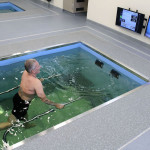Buprenorphine Patches in Diabetic Peripheral Neuropathy
Transdermal buprenorphine may be an effective therapy for diabetic peripheral neuropathic pain (DPNP). However the treatment was associated with a high rate of adverse events, mostly nausea and/or vomiting. The findings come from a newly published multi-center, randomized, double-blind, placebo-controlled, parallel-group trial. Ninety-three patients with type 1 or 2 diabetes were enrolled and received either […]
 Skip to content
Skip to content

